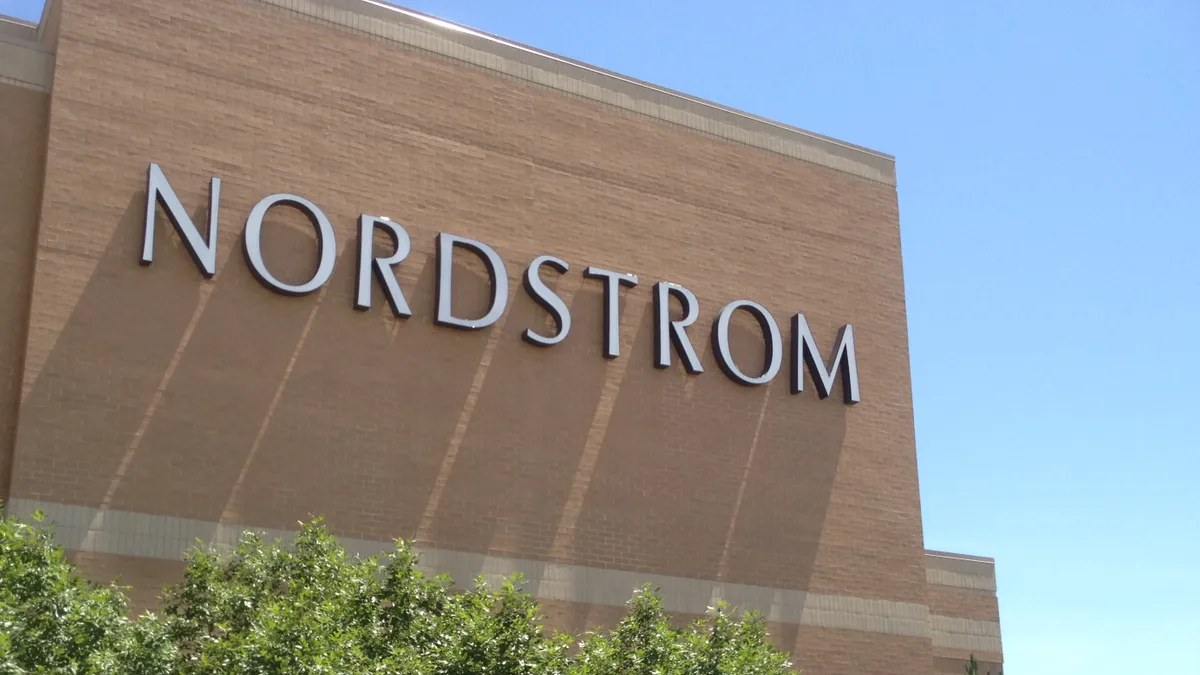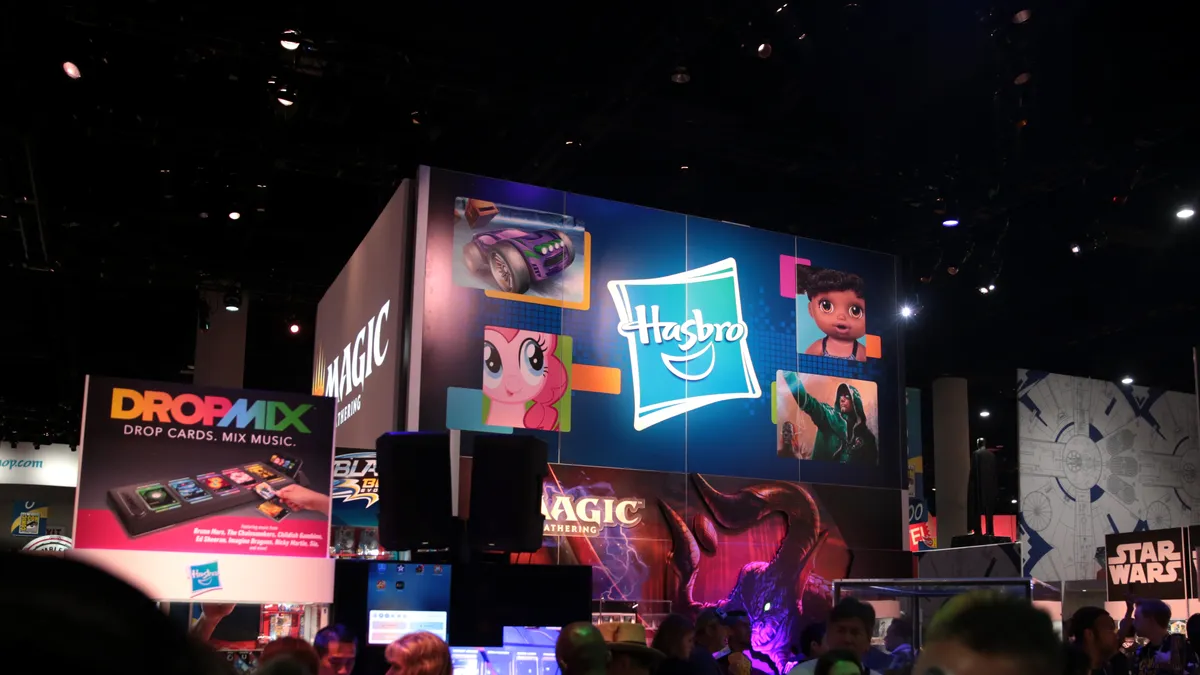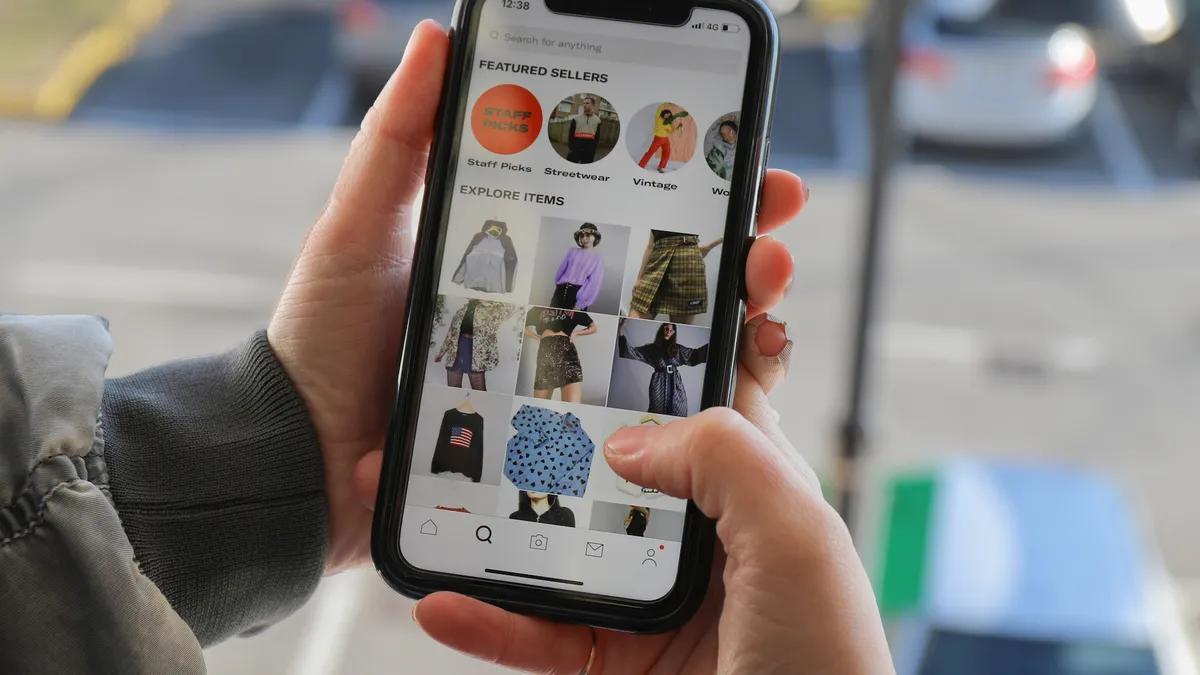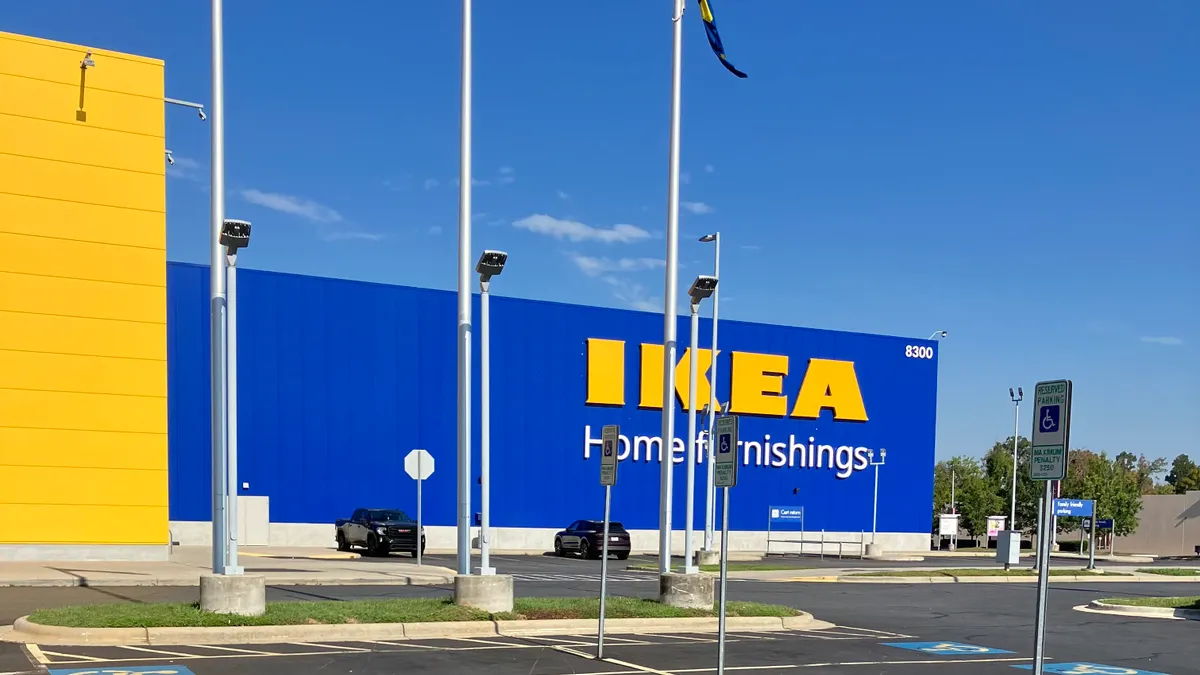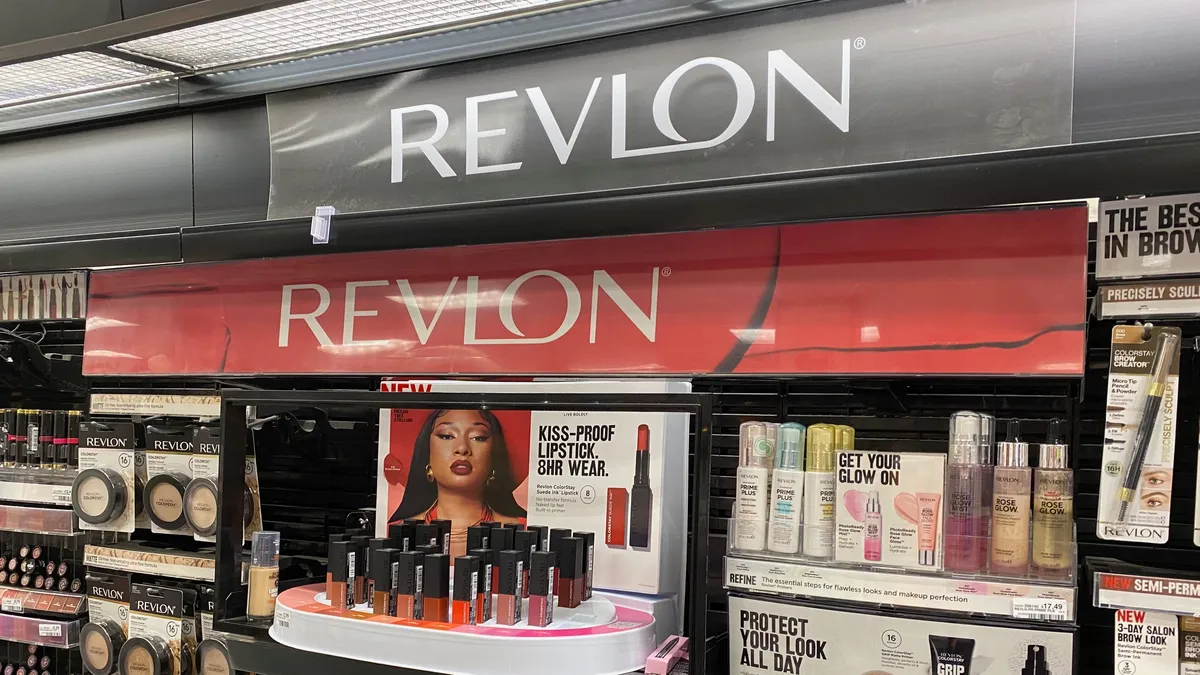It’s been another week with far more retail news than there is time in the day. Below, we break down some things you may have missed during the week and what we’re still thinking about.
From tween brand Justice’s collaboration with Minecraft to Taft’s first women’s collection, here’s our closeout for the week.
What you may have missed
Minecraft gets Justice
Tween clothing brand Justice announced on Tuesday a collaboration with best-selling video game Minecraft. The limited-edition Justice x Minecraft collection includes a selection of tops, bottoms, accessories, sleep sets and swimwear available exclusively at Walmart.
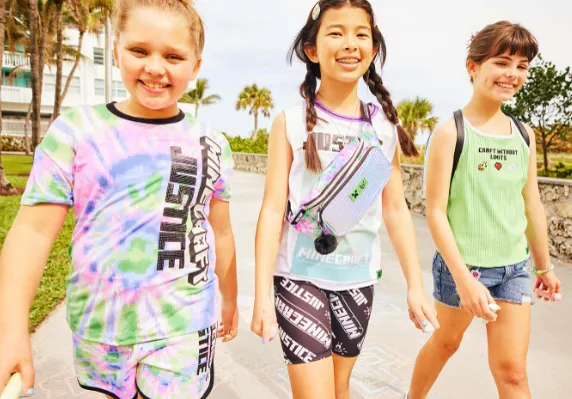
“The entire Justice team is committed to delivering unique collaborations that cater to the passions and preferences of all girls,” Kat DePizzo, president of Justice Design Lab, said in a statement. “This collection goes beyond clothing; it captures the spirit of Minecraft and tailors it to every tween's style, building on our 20-year mission to champion girls and break style barriers in the fashion industry.”
Bank of America downgrades Figs, citing spending pullbacks from core customer base
DTC scrubs brand Figs may be facing trouble as consumers pull back on discretionary spending. Bank of America on Tuesday downgraded Figs’ stock to underperform, citing a “challenging sales environment” for the brand.
“We think COVID caused a pull-forward in demand for scrubs, creating outsized growth and margins for FIGS. The healthcare worker is now squeezed by inflation and focused on spending on other areas instead of replenishing their uniforms,” the analysts wrote in a research note led by Bank of America research analyst Lorraine Hutchinson. “Without a line of sight into an improving macro environment for the core customer that would drive stronger sales, we see few catalysts for multiple expansion.”
In its most recent quarter, Figs reported Q4 revenues were flat year over year, while net income increased from $3.4 million in the year-ago period to $10 million. For the full year, the brand reported revenue increased nearly 8% year over year to $545.6 million — which Hutchinson noted as “better than initial expectations,” but said it was driven in part by inventory clearing.
“Figs executed the inventory reduction nearly seamlessly (gross margin only down 100 [basis points] in 2023), but this likely pulled forward some demand, creating pressure on the 2024 outlook,” Hutchinson said.
For the year ahead, Figs expects revenue to be down mid-single digits to flat.
Puma plans design, marketing space in Los Angeles
After moving its marketing operations from Boston to Germany last year, Puma this week announced it would open a “creative space” in Los Angeles in early 2025 to help the athletics brand win share in the U.S. market. That’s in addition to a U.S. product team located in Somerville, Massachusetts.
The move is aimed at positioning the brand’s design and marketing teams “closer to the most influential communities and celebrities” in the U.S. When Puma CEO Arne Freundt — who took over in November 2022 — restructured the company’s marketing organization and moved things to Germany to speed up decision-making, the executive said the North America team would still have responsibility for local sports marketing and partnerships. Now it seems Freundt wants to give them even more autonomy.
“Opening our Puma Studio in LA is an important strategic move for us, as we seek to elevate our business in the United States,” Freundt said in a statement. “Our new home will allow us to attract the best talent in one of the most vibrant and creative cities globally to create great product propositions for the US market.”
The brand has seen a slew of executive changes in the past couple of years, including the exit of its global brand chief and the naming of a new senior vice president of North American wholesale sales. Puma brought on H&M vet Julie Legrand to lead global brand strategy in February.
Taft launches first women’s collection
On Tuesday, Taft launched Taft for Her, the brand’s first-ever women’s collection. The line takes the qualities of the brand’s bestselling men’s shoes, boots and loafers and adds “a fresh, feminine perspective,” the company said.
The new line includes the Jill Boot, the Roma Boot, the Freya Boot and the Flora Loafer, which all mirror their male counterparts. The women’s line is available in sizes 5 to 12, with prices ranging from $255 to $295, and can be purchased on Taft’s website and at select retail partners.
"Expanding Taft into a women's collection has always been something on our radar," Jordan Hancock, director of design and development at Taft, said in a statement. "For years there have been numerous comments, DM's, and emails asking us to make women's products. We have always been passionate about helping people be confident, be unique, and be bold in their distinctive ways. We want people who wear our shoes to feel good — not just about the quality of our product and the design, but about themselves and the value that they bring to everything they do."
Retail Therapy
Sherwin-Williams celebrates failure with ‘The Loneliest Color’
In the Broadway musical “Wicked,” Glinda makes it her mission to turn everyone’s least-favorite classmate, Elphaba, into one of the popular kids. In a move with many parallels, paint brand Sherwin-Williams is launching a similar, hopefully more successful, campaign to turn around its least favorite, green-undertoned color.
The company wants to change shoppers’ minds about its “most overlooked, least tinted” and least popular color, Kingdom Gold, according to a company press release. We’re not talking just about a recently unloved color. Kingdom Gold has had the fewest gallons created at Sherwin-Williams since 2011.
So how will the paint brand turn it around? Sherwin-Williams is launching “The Loneliest Color,” an effort dedicated to rediscovering “the beauty of color” alongside a different popular fashionista: Dapper Dan. As creative director, Dapper Dan created a collection of wearable art pieces in collaboration with Sherwin-Williams, all featuring the loneliest color, from a velour jacket to a bucket hat and a soccer kit.
The products are available through an eBay auction until April 14. In a video on The Loneliest Color, Dapper Dan — who has been on the Time 100 list of Most Influential People — called being the creative director of the project “the hallmark of my career.”
Haribo offers unicorn-themed stay for gummy lovers
Haribo fans are in for a sweet retreat. In celebration of releasing its Unicorn-i-licious gummies, Haribo on Tuesday announced it is offering two-night stays at its unicorn-themed “Treat Retreat”, according to a press release. Beginning at noon on Tuesday, also National Unicorn Day, fans can claim spots on a first-come, first-served basis through the candy manufacturer's website.

Stays at the two-bedroom New York City accommodation are available only between April 10 and April 18. The room features a unicorn bedroom, build-your-own pillow fort, gummi-inspired art and a unicorn-themed family-friendly mini bar. After their stay, guests will go home with unicorn slippers, eye masks and plenty of Haribo Unicorn-i-licious gummies. The unicorn gummies come in cotton candy, blue raspberry, apple, tangerine, berry punch and banana flavors.
What we’re still thinking about
$480M
That’s how much debt Shoes for Crews reported holding in a Monday Chapter 11 bankruptcy filing. Documents filed in bankruptcy court in Delaware indicate the slip-resistant footwear maker, which provides private-label products worn by many people in service industries, claims liabilities of between $500 million and $1 billion and assets of at least $100 million.
The company’s top 10 creditors, which include Ceva Logistics and New Balance, are collectively owed more than $20.5 million. Shoes for Crews also said this week it has secured $30 million in debtor-in-possession financing to support its operations and ensure business continuity as its bankruptcy case proceeds. Shoes for Crews intends to enter a stalking horse purchase agreement to sell the company and stay in business under new ownership.
7.8%
That’s how much revenue — which came in at $1.6 billion — fell year over year in Q1 at Levi’s. The company also swung to a loss of $10.6 million from $114.7 million in net income a year ago. This week’s news from the company wasn’t all down, though. Direct-to-consumer revenue at stores and online rose 7%, while e-commerce grew 13% and wholesale fell 18%.
Despite some declines, Levi’s executives said during a Wednesday earnings call that results beat its expectations. They credited inventory and expense discipline, DTC sales growth, strength in denim and renewed strength in the U.S. — its largest market.
Company executives also acknowledged a boost from the song “Levii’s Jeans” on Beyoncé’s new album, Cowboy Carter. “One of the things that really is significant about the Levi’s brand, and we place a lot of emphasis and investment, is making sure that Levi’s brand remains in the center of culture,” CEO Michelle Gass said during the earnings call. “And I don’t think there’s any better evidence or proof point than having someone like Beyoncé, who is a culture shaper, to actually name a song after us.”
What we’re watching
What’s next for Amazon tech?
This week Amazon said, after years of touting the technology, it is scaling back its Just Walk Out tech from its Fresh stores in the U.S. Instead, locations will roll out Dash Carts.
The Information, which first reported the news, stated that Just Walk Out employed people in India who work behind the scenes to monitor shopping activity, according to multiple media outlets citing The Information. In response, an Amazon spokesperson stated that the characterization was inaccurate, and that data associates annotate video images and validate a small number of shopping visits.
Later, the company said that its cloud computing unit, AWS, is cutting hundreds of jobs, including a “few hundred” in its Physical Stores Technology team.
In other news, the company also recently launched its Amazon One app in the App Store and Google Play Store. The tech allows customers to sign up for the company’s contactless palm recognition service and use it to pay at checkout in Whole Foods stores, several Amazon stores and third-party locations like stadiums, airports, gyms and convenience stores.
All of the changes beg the question — what’s next for Amazon checkout tech and retail?







